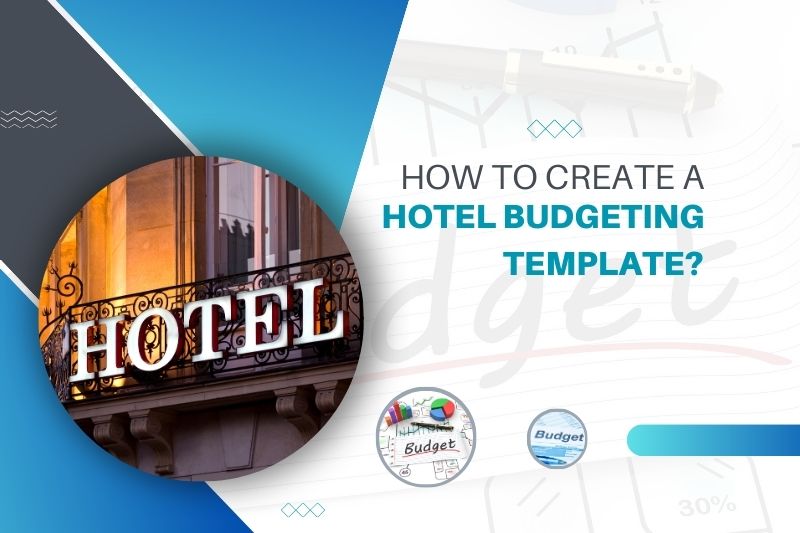
In the fast-paced world of hospitality, effective financial management is a cornerstone of success. A well-crafted hotel budgeting template can be a powerful tool for hoteliers, helping them navigate the complex landscape of revenue and expenses. In this guide, we'll explore the essential steps to create a robust hotel budgeting template that ensures financial stability and facilitates informed decision-making.
1. Understanding the Basics: Revenue and Expenses
Before diving into the intricacies of budgeting, it's crucial to grasp the fundamental components: revenue and expenses. Revenue includes income from room bookings, food and beverage sales, events, and any other sources specific to the hotel. Expenses encompass operational costs, employee wages, utilities, maintenance, marketing, and more.
Begin by categorizing these revenue and expense streams. This foundational step lays the groundwork for a comprehensive budget that reflects the hotel's financial landscape accurately.
2. Historical Data Analysis: Learning from the Past
Analyzing historical data is a key aspect of budgeting. Review past financial statements, occupancy rates, and revenue sources to identify trends and patterns. Historical data provides valuable insights into seasonal variations, peak periods, and areas where costs may fluctuate.
Examine the performance of different revenue streams and assess the impact of external factors, such as local events or economic conditions. This analysis serves as a basis for forecasting future revenues and anticipating potential challenges.
3. Revenue Forecasting: Anticipating Income Streams
Accurate revenue forecasting is at the heart of effective budgeting for hotels. Utilize historical data, market trends, and industry benchmarks to project room occupancy rates, average daily rates (ADR), and revenue per available room (RevPAR). Consider the potential impact of marketing initiatives, seasonal variations, and any planned renovations or expansions.
Break down revenue forecasting by department, including rooms, food and beverage, events, and other ancillary services. By creating detailed revenue projections, you can align your budget with realistic expectations and identify areas for revenue growth.
4. Expense Budgeting: Managing Operational Costs
Creating an expense budget involves detailing all operational costs associated with running the hotel. Categorize expenses into fixed and variable costs. Fixed costs, such as rent and insurance, remain constant, while variable costs, like utilities and staffing, fluctuate based on occupancy and demand.
Establish clear expense categories, including labor, utilities, maintenance, marketing, and administrative costs. Assign specific budgets to each category, considering historical data, industry benchmarks, and any upcoming changes in the business environment.
5. Contingency Planning: Mitigating Financial Risks
In the volatile hospitality industry, unforeseen circumstances can impact financial stability. Integrate contingency planning into your budgeting template to account for unexpected events such as economic downturns, natural disasters, or global crises.
Allocate a percentage of the budget for contingency reserves, allowing the hotel to navigate challenging times without compromising its financial health. This proactive approach enhances financial resilience and positions the hotel to weather uncertainties.
6. Technology Integration: Streamlining the Budgeting Process
Leverage technology to streamline the budgeting process and enhance accuracy. Hotel management software and accounting platforms can automate data collection, facilitate real-time updates, and generate insightful reports. Implementing technology solutions not only saves time but also ensures that the budgeting template remains dynamic and responsive to changing circumstances.
7. Stakeholder Involvement: Collaboration for Success
Incorporate input from various stakeholders in the budgeting process. Engage department heads, finance teams, and key decision-makers to gather insights and perspectives. This collaborative approach fosters a sense of ownership and accountability, aligning the budget with the overall strategic goals of the hotel.
Regularly communicate budgetary goals and performance metrics to all stakeholders, promoting transparency and fostering a collective commitment to financial success
8. Monitoring and Adjusting: A Continuous Improvement Cycle
A hotel budgeting template is not a static document; it requires continuous monitoring and adjustments. Implement regular financial reviews to compare actual performance against budgeted figures. Identify any discrepancies, assess the reasons behind them, and adjust the budget accordingly.
Use variance analysis to understand the root causes of deviations between budgeted and actual results. This ongoing feedback loop enables the hotel to adapt to changing market conditions, capitalize on opportunities, and address challenges proactively
In conclusion, creating a hotel budgeting template is a meticulous process that involves a deep understanding of revenue and expenses, historical data analysis, forecasting, and technology integration. By embracing a comprehensive and collaborative approach, hotels can develop a dynamic budgeting template that serves as a roadmap to financial success, enabling them to navigate the complexities of the hospitality industry with confidence and resilience.
